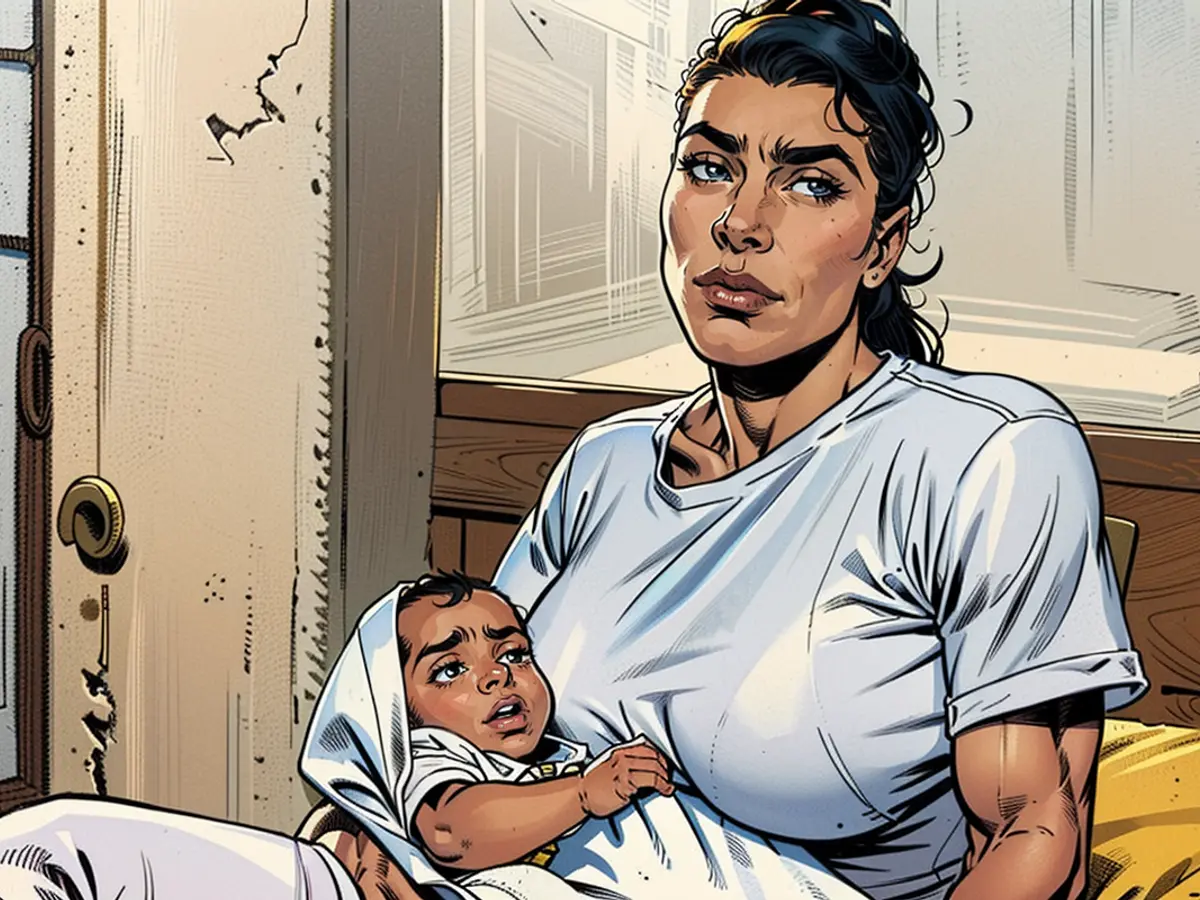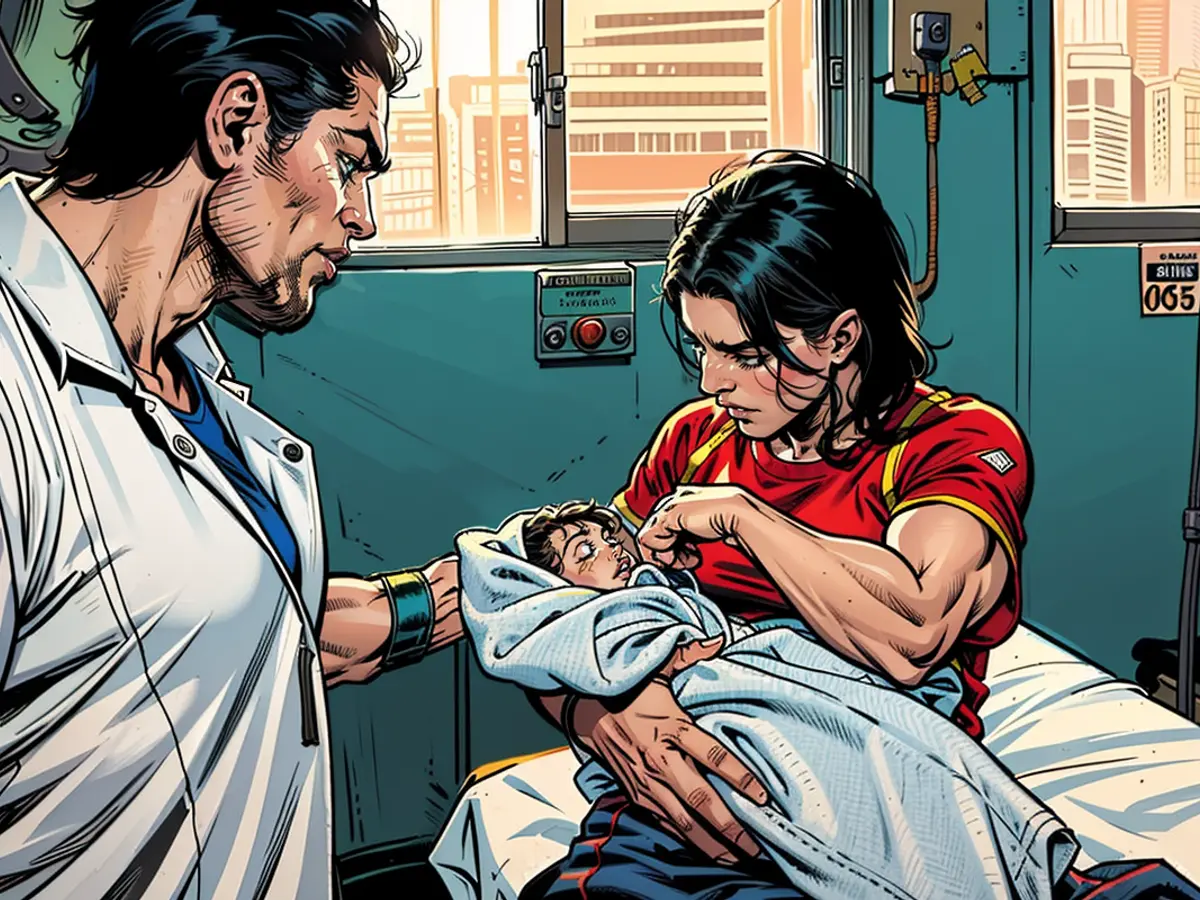Millions of Afrikaners have no legal identity
Africa is the continent with the youngest population. However, half of all babies and young children south of the Sahara do not have a birth certificate. This has dramatic consequences.
It is almost unthinkable for a baby not to receive a birth certificate in Germany. However, in many countries in Africa, this is the norm: According to UNICEF, only one in two children under five years old are officially registered in Africa south of the Sahara. This has serious consequences for education, healthcare, employment opportunities, and human rights.
Africa, with its approximately 1.3 billion people, is considered a continent with a young population. One in three people in the 46 countries south of the Sahara are between 10 and 24 years old. At the same time, the population in the region is growing at the fastest rate worldwide. According to UN projections, there will be 2.1 billion people living there by 2050 - many millions of whom will be without legal identity.
The situation is particularly dire in Ethiopia and Somalia: According to UNICEF, only three percent of children under five years old have a birth certificate in these countries. In Zambia, only 14 percent are registered, while in Tanzania, Angola, and Chad, approximately one in four babies have a birth certificate. In Uganda and South Sudan, about one in three children lack this important document.
"A birth certificate gives a child a legal existence, an official name, a nationality, a foundation for life. Without birth registration, a child is disadvantaged from birth," says Amandine Bollinger, UNICEF's Child Protection Chief in Angola.
Disadvantaged from Birth
The first consequence is often that a child without a birth certificate does not receive vaccinations, according to Bollinger. A bad start in life. Children and later adults without legal identity cannot prove who they are or how old they are. They cannot open an account, exercise their right to vote, buy property, inherit an estate, or apply for a job on the legal labor market. They are not protected from human trafficking or child marriage and are at risk of being used as child soldiers.
The low rate of birth registration has numerous causes: In Africa, most births take place at home, often in remote rural areas. Many parents do not have the necessary documents to apply for a birth certificate. In some cases, fathers deny paternity or are not present. In addition, many mothers, due to their low level of education, are not aware that their baby needs to be registered.
Whoever has no ID card is not in any statistics. Djanina Baptista, the head gynecologist at the Cajueiro Hospital in Angola's capital Luanda, puts it bluntly: "A child that is not registered is an invisible child. It does not exist in the system." Her staff tries to educate pregnant women about the importance of birth certificates, Baptista says, but in an overcrowded hospital with overburdened personnel, this is only possible to a limited extent.
Mothers who give birth at the Cajueiro Hospital have luck. It is Angola's only state hospital with an integrated birth registration office. However, newborns can only be registered at the Cajueiro Hospital during specific hours: weekdays between 8 am and 3 pm. Those who give birth at other times are met with closed doors.
Bureaucratic Barriers
The bureaucratic barriers are high. In some countries, parents must travel long distances to register their child's birth, often spending days or even weeks away from their homes and families. They may also have to pay fees, which can be a significant financial burden for families living in poverty. In some cases, parents may not have the necessary documents, such as proof of residence or identity documents, to register their child's birth.
UNICEF and its partners are working to address these challenges by supporting governments to improve birth registration systems and raising awareness among communities about the importance of registering their children's births. They are also working to simplify the registration process and reduce fees. However, much more needs to be done to ensure that every child in Africa has a legal identity and the opportunities that come with it.
Claudia Lopes gave birth to a son a few hours ago and is waiting to be discharged. She had never heard before that there is a possibility to request a birth certificate for the little Lucas. Her own documents or those of the father were not with her. But now that she knows, she will come back and do it," says the young mother.
However, even when parents are informed about the importance of a birth certificate, many face great bureaucratic hurdles. Madalena Zongo is 17 years old, a single mother living in Luanda's low-income neighborhood Grafanil. She cannot register her one-month-old son Gabriel: Since she herself has no birth certificate and the father of her baby is missing. Her parents also do not have valid documents, she tells us. With little hope, Baby Gabriel may ever be registered. "It's a vicious circle. If babies are not registered at birth, their chances of catching up later in life are minimal," says Bollinger.
Zongo is worried. She knows from her own experience that a missing birth certificate can consume many opportunities in life. She herself had difficulties being accepted into school. She finally made it to the first grade at the age of eleven. After the third grade, at the age of thirteen, she dropped out of school. "It was just too difficult to ask for admission every school year. I gave up," she says.
Millions of people without a birth certificate in Africa, which causes poverty and eliminates prospects - reasons that drive irregular migration towards Europe. But even those who make it to Europe face the same hurdle: Without identity documents, they cannot prove their identity. "This reduces their chances of applying for asylum. Or they feel forced to assume a false or forged identity," explains Bollinger.
In the German debate, irregular migrants are often accused of deliberately throwing away their passports during flight. In reality, many of them do not even possess identity documents.
In Africa, countries like Ethiopia and Somalia have particularly low rates of birth registration, with only three percent and 14 percent of children under five years old having a birth certificate, respectively. UNICEF's Child Protection Chief in Angola, Amandina Bollinger, emphasizes that a lack of birth registration often results in children missing out on vaccinations, leading to disadvantages from the beginning of their lives. Furthermore, individuals without legal identity cannot prove their age, open bank accounts, vote, buy property, inherit estates, or apply for legal jobs, increasing their vulnerability to human trafficking, child marriage, and exploitation.







